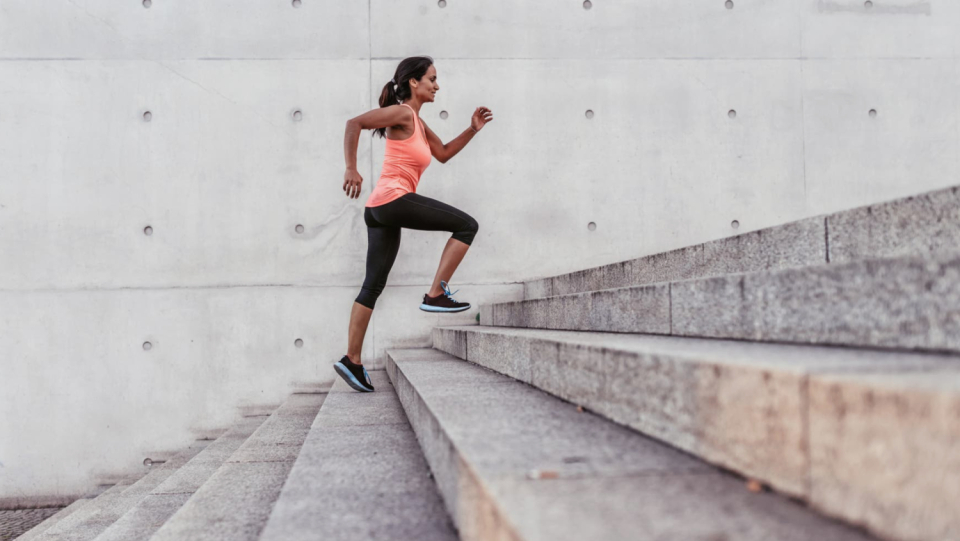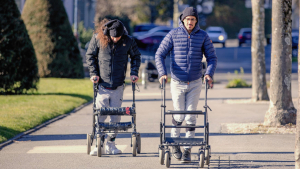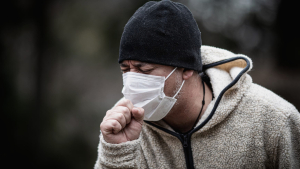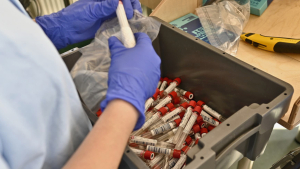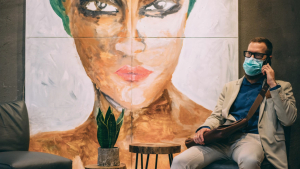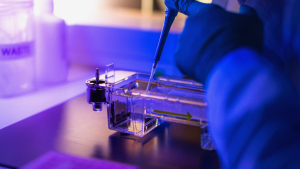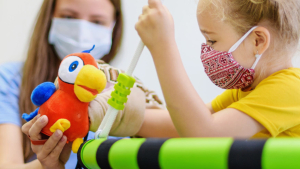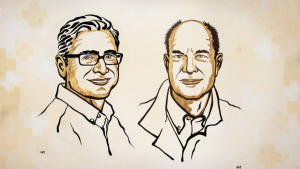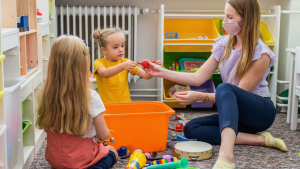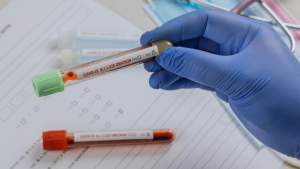That sport is good for the immune system is considered common knowledge – but is it really true? A meta-analysis of the expert network "Cochrane Collaboration" came to the sobering conclusion in 2020 that neither the number of respiratory diseases nor the duration of symptoms were reduced in people doing sports. However, this does not mean that exercise does not benefit the immune forces. "The connections are not quite simple – the immune system has many different components, and some functions improve due to physical activity and others deteriorate," says Philipp Zimmer, professor at the Institute of Sport and Sports Science at the Technical University of Dortmund.
Sport can also promote respiratory infections. These occur more often in competitive athletes during and after phases of greater stress-according to older studies, even two to six times more often. "There is a short-term immunosuppression through great effort like a marathon run," says Karsten Krüger, professor of sports physiology at the University of Gießen and chief editor of the specialist journal "Exercise Immunology Review". "If you have a pathogen, for example, it is possible that it will increase."
It is unlikely that amateur athletes will face danger.
However, more recent publications arise whether the symptoms, of which professional and ambitious amateur athletes report, actually always affect new infections. Because different working groups were only able to prove pathogens in competitive athletes who complained of respiratory symptoms only in 30 or 57 percent of cases. Some studies suggested that there are also local inflammatory reactions due to the effort. Another theory is that pathogens that are always present in the body, such as the Epstein-Barr virus, use short-term phases of overexertion for increase. "Probably there is often a confusion with an acute infection," says Krüger. "In particular, competitive athletes were examined after high physical stress - there is no evidence of immunosuppression through everyday sports."
Nevertheless, hobby joggers can influence the risk of a respiratory infection according to Krüger by simple rules of conduct. "You should eat enough before and after sports," says the sports voice unit. "I would therefore not walk before breakfast in the morning, because both the muscles and the immune cells need glucose." This competitive situation could lead to a pathogen in the body gaining the upper hand, increasing and then causing a respiratory infection.
"But we mainly see the positive effects through acute physical stress," says Krüger. "She activates the innate immune response." This part of the immune system is the fast broadband defense, which recognizes and clears many pathogens using known patterns. This is done, among other things, the natural killer cells that become more active in people who move regularly, as Philipp Zimmer and his research team showed in a large meta study in early 2021. The effect returns to the starting value one to two hours after training.
"The natural killer cells work better against viruses and bacteria immediately after physical activity," says Krüger. However, this should by no means tempt you to do an end. "If you have an infection, you shouldn't do sports," explains Zimmer. "Depending on the pathogen, significantly increased heart activity can result in potentially life -threatening heart muscle inflammation."
This short period is fundamentally different from the long-term effects of exercise. "There are definitely preventive effects," says Zimmer. Although physically active people are not less likely to have acute respiratory infections, the symptoms are milder, as the Cochrane Collaboration also found in the study mentioned at the beginning. The finding is supported by epidemiological data from Covid-19 patients: Those with a lifestyle with little exercise had more than twice the risk of being hospitalized than those who reported physical activity for at least 150 minutes per week. This was the conclusion reached in 2021 by a working group led by Deborah Cohen of the Southern California Permanente Medical Group in Pasadena after analyzing the data of almost 50,000 corona patients.
Exercise can weaken the immune system.
How physical activity affects the immune system at the cellular level has not yet been fully researched – it is clear that numerous parameters change. Many so-called neutrophils and monocytes are formed, i.e. cells that can eat pathogens. What possible long-term positive effects can be attributed to is even more difficult to measure and accordingly hardly researched. In 2021, researchers at the Mayo Clinic in Rochester, USA, showed for the first time in humans that exercise reduces the amount of proteins that age the immune system. A twelve-week training program had been sufficient for this.
It is considered part of the normal aging process that T cells function less and less well over the years. For example, cytotoxic T cells are becoming increasingly worse at killing body cells affected by viruses. "If a person has many of these depleted T cells, which function only to a very limited extent, severe infection courses are more common," says Karsten Krüger. "Some studies show that regular exercise mainly reduces the aged T cell types, but increases the number of naive ones and can thus reverse immune aging processes." Naive T cells can be activated by new antigens (such as surface proteins of viruses or bacteria) and can thus fight pathogens that were unknown to the body until then.
Through sport, the characteristics of immune agents in older people are partly reversible, as a meta -analysis published in 2021 by researchers from the Free University of Brussels suggests. "Physically active people who are not overweight have more naive immune cells than inactive," says Karsten Krüger. "This is one of the reasons why an active lifestyle holds the immune system until old younger."
But what does active lifestyle mean specifically? Here, too, the Covid 19 pandemic provides clues. A study from South Korea, which comprises the data of more than 75,000 people, differentiates between people who did more than 150 minutes of endurance training plus 75 minutes of strength training, and those who did less sport. The information on physical activity came from a survey of before pandemic. As the researchers around Dong Keon Yon reported on the Seoul National University Hospital 2021, the group, which had done both endurance and strength training, was able to reduce their risk of severe covid 19 disease or death by half in comparison to the people who had only done moderate endurance training. Endurance training alone was more effective than strength training. "Anyone who is intensively burdened with a greater effect," says Zimmer. The WHO also advises since 2020 to exercise at least 150 to 300 minutes with medium to high intensity every week. Alternatively, 75 to 150 minutes with high intensity are sufficient. For "additional health benefits", the WHO experts recommend comprehensive strength training of at least moderate stress two or more days a week.
"In any case, people who do sports are less likely to be sick," says Karsten Krüger. "This applies to metabolic diseases such as type 2 diabetes, infections - and is even detected for some cancers." Because the natural killer cells mentioned are also among the most effective weapons of the body against degenerate cells. "If we do sports regularly, the natural killer cells are better able to recognize tumors, to penetrate them and to eliminate them," says Krüger. "Therefore, physically active people are less likely to develop cancer." In particular, the risk of breast and colon cancer can be reduced by an active lifestyle, as an international team of researchers led by José Eluf-Neto from the University of São Paulo 2018 concluded in a meta-analysis. There are also indications for the prevention of prostate cancer through physical activity.
However, all these findings are based on observational studies and can therefore only establish correlations and no causal relationships. A healthy lifestyle overall – i.e. a balanced diet, enough sleep, no smoking and low alcohol consumption – also contributes to a good immune system. In epidemiological studies, the individual effects can hardly be separated from each other, because people who exercise regularly tend to lead a healthy lifestyle overall.
However, the information from epidemiological studies on the health -promoting effects of sport are supported by laboratory data. "In the case of cancer patrons that move in a impeller, - compared to control animals - tumors are smaller and stronger with natural killer cells," says Krüger. "Immunzelles of sporting people also show higher activity in the test tube than those of people who move less." According to Philipp Zimmer, however, there is no clear evidence that they are precisely these effects that influence the formation and course of various diseases. "But after everything we know, it is obvious."







